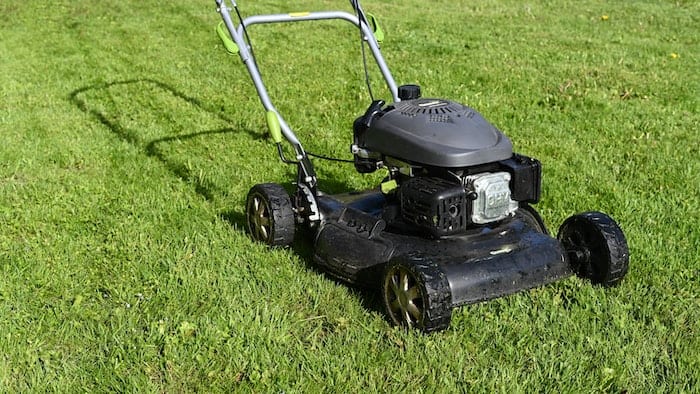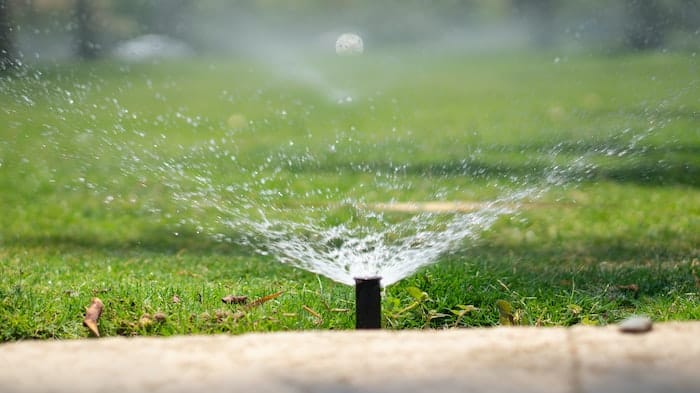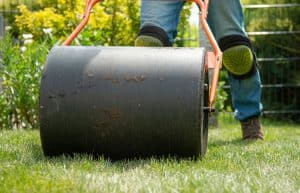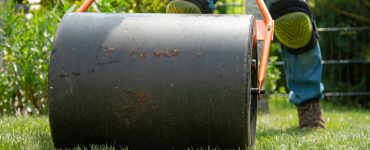Watering and mowing your lawn are two most important things. A properly watered lawn can be healthy, look great, and save you time and energy. However, there’s always been some confusion about whether or not homeowners can water their lawn after mowing. Generally, the answer is yes, as long as you don’t water them before you mow.

Why You Shouldn’t Water Before You Mow?
If you water your lawn before you mow it, the wet grass will just clump up as you mow it, clogging your mower. The extra weight of the water will also cause the blades to bind, which can reduce its ability to cut through the grass.
Plus, if there’s any standing water on your lawn, it’ll attract mosquitoes and other pests. Finally, watering your lawn before you mow causes unnecessary wear and tear on your equipment.
What Will Happens if I Water Lawn After Mowing
If you water your lawn after you mow it, the grass will probably start to grow back faster. This is because when the lawn gets wet, it releases nutrients that help the grass grow. However, if you water your lawn too often, the soil will become too wet and causes moss to grow and can cause leaves to be yellowed.
Signs that You Need to Water Your Lawn
Watering your lawn is an important part of keeping it healthy and looking great. Here are 3 signs that you should start watering your lawn:
Grass Is Brown and Wilted
Lawns require an average of 1 inch of rainfall per week in order to thrive. If it hasn’t rained in 7 days, then you should start watering your lawn. You can check the local weather forecast to determine when the next rain event is scheduled.
Ground Is Dry and Cracked
Watering your lawn is important for a healthy lawn. If there are cracks in the ground or the ground is dry, you need to water your lawn. The ground should be moist but not wet. Wetting the grass will cause fungus and other diseases to grow.
There Are Patches of Dead Grass
If you see patches of dead grass, it is a sign that you need to water your lawn. Dead grass can indicate that there is not enough water available to the plants, which can lead to brown patches and eventually death of the grass.

Tips For Watering Your Lawn
Watering your lawn can be a chore, but with a few easy tips, the job can be done quickly and effectively. Here are five tips to help you water your lawn in the most efficient way possible:
Determining the Amount of Water Your Lawn Needs Based on The Weather Conditions
The amount of water your lawn needs will vary depending on the weather conditions. We recommends a watering regimen of two times per week in hot weather and once every other week in cold weather. Additionally, a rule of thumb is to water your lawn when it looks dry on top and has settled evenly throughout.
Water Lawn at The Proper Time of Day Based on Sun and Shade Conditions
Watering a lawn at the optimal time of day is dependent on a number of factors, including the amount of sunlight and shade present. Lawns that are watered in the morning when the sun is shining will tend to become dry and brown, while lawns that are watered at night or during shaded conditions will cause the soil to be too wet.
Check the Moisture Level of Your Lawn
One of the most important steps in maintaining a healthy lawn is checking the moisture level. Too much moisture can cause lawn damage such as erosion, brown patches, and spot fungus. Checking the moisture level every week will help you catch problems early and keep your lawn looking great.
Create a Routine Schedule
A routine schedule to water your lawn is important in order to avoid wasting water and to make sure that the lawn receives an adequate amount of water. Watering your lawn on a regular schedule will also help to keep the grass healthy and green.
Collect Rain Water
Rainwater is a great option for watering lawns because it has high concentrations of minerals, such as potassium and magnesium. These minerals help to keep soil pH levels stable, which helps prevent diseases and pests from spreading. Additionally, rainwater is typically clean and free of contaminants, making it a desirable choice for the environment.
Conclusion
In conclusion, homeowners can water their lawn after mowing if they want to. However, doing so requires a bit of extra work in terms of time and effort. So, if you want to avoid watering your lawn, mow first and then wait for a few hours until the grass is completely dry before watering again.









